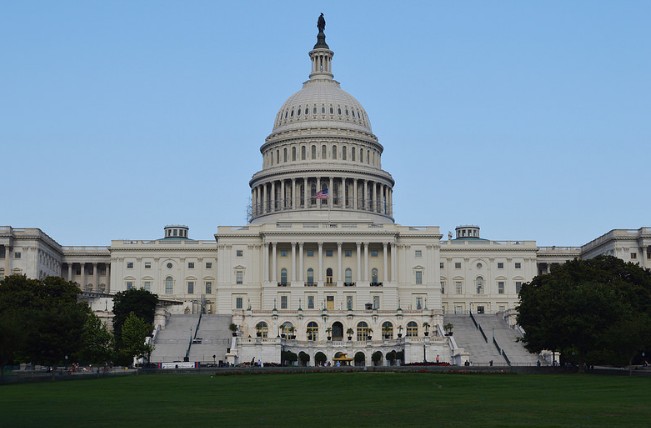Below are some of the most interesting and promising pieces of legislation that House and Senate lawmakers have recently introduced. While many or even all of these bills may never be signed into law – for reasons ranging from post-ESSA exhaustion to lack of bipartisan support to simply not enough room on Congress’ agenda in an election year – they provide insight into what our elected representatives feel are the most important levers for improving student outcomes. They also open doors for potential work during the next Congress, as ESSA implementation continues.
| The STEM Gateways Act These days, it’s hard to talk education reform – and workforce development – without mentioning science, technology, engineering, and mathematics (STEM), particularly as ESSA implementation continues. It’s also been well documented that early engagement is crucial to inspiring students to continue pursuing STEM opportunities. The STEM Gateways Act, introduced by Rep. Joe Kennedy (D-MA), would create a competitive grant program for elementary and secondary schools for the development of STEM curricula. The bill also makes special mention of women and minority students and those from low-income backgrounds, who still “remain significantly underrepresented in engineering and computing occupations.” Though it has only Democratic cosponsors as of now, the legislation has earned the endorsement of organizations like the American Association of University Women (AAUW), which called it a “critical step to begin preparing the next generation of STEM professionals.” The Safe Schools Improvement Act In a departure from its predecessors, ESSA took into account the importance of non-academic “school climate” factors such as student engagement and safety. It remains to be seen whether that law, given its often vague wording, will decrease the number of bullying incidents reported throughout the country, and so some legislators have sought to pass legislation to more specifically address the issue. Rep. Linda Sanchez (D-CA) and Rep. Richard Hanna (R-NY) introduced a bill that would require schools receiving federal funds to create strong, effective anti-bullying programs. With more than 140 bipartisan cosponsors and counting, and the support of prominent advocacy groups like the Human Rights Campaign, the legislation’s chance of passage may be better than average. The Youth Access to American Jobs Act Career and technical education (CTE) programs provide a path to secure employment for many students, helping to create a stronger workforce and economy; to that end, CTE has often enjoyed bipartisan support on Capitol Hill, which is not always a given in today’s hyper-partisan environment. Introduced by Rep. Rick Larsen (D-WA), this bill would create a pilot program to facilitate manufacturing-focused STEM apprenticeships for students beginning in high school. The bill would also foster partnerships between secondary schools, community colleges, and businesses. The legislation has earned the strong support of the Association for Career and Technical Education (ACTE), which praised Rep. Larsen for his “dedication to exploring opportunities to increase access to secondary and postsecondary CTE programs.” The bill, however, has only attracted Democratic cosponsors in the House, making its chances of passage somewhat limited. The Financial Literacy for Students Act Access to financial literacy education is another issue that disproportionately affects students in poverty compared to their more affluent classmates, which serves to further widen the wealth gap. To combat this, Rep. Matt Cartwright (D-PA) introduced bipartisan legislation to engage schools in the development of financial literacy skills by creating a matching grant program for state K-12 financial literacy programs. Rep. Cartwright’s bill has garnered the endorsement of the National Educational Association (NEA). Notably, President Obama has also made increasing financial literacy a key part of his efforts to create greater economic mobility for American families, speaking to the importance of “empowering every individual with the knowledge, skills, and access to the necessary tools to manage their finances effectively.” The Counseling for Career Choice Act A crucial part of the K-12 experience, especially as students enter their high school years, is helping them to make constructive decisions about appropriate next steps – whether they involve a two-year college, a four-year college, a career, or something else altogether. School counselors can play a critical role in guiding young people in the right direction, but students in lower-income communities are less likely than their more affluent peers to have consistent access to college and career counselors. Introduced by Rep. Jim Langevin (D-RI) and Rep. Glenn Thompson (R-PA), the Counseling for Career Choice Act would award grants to states for the development of comprehensive postsecondary counseling programs to provide guidance on both educational and career opportunities. While this legislation has just under a dozen House supporters, it has earned the endorsement of organizations like ACTE, which noted that the bill “would help to ensure that our nation's school counselors have the resources and materials to help students make educated decisions about their future." |
Lydia Hall is a legislative aide in the U.S. House of Representatives, where she works on education, civil rights, and other issues. A graduate of Tufts University and of Teachers College at Columbia University, where she studied sociology and education with a concentration in policy, Lydia is interested in helping to bridge the gap between Capitol Hill and the classroom. Feel free to connect with her on Twitter or LinkedIn.


 RSS Feed
RSS Feed